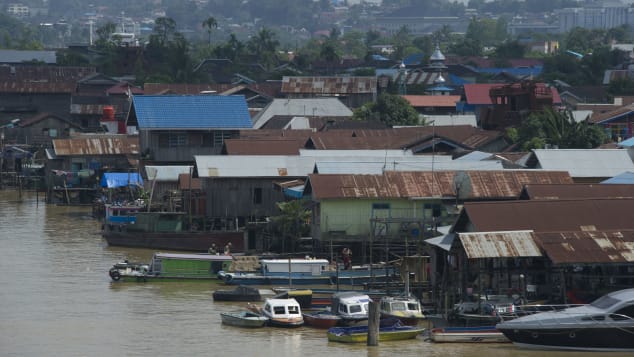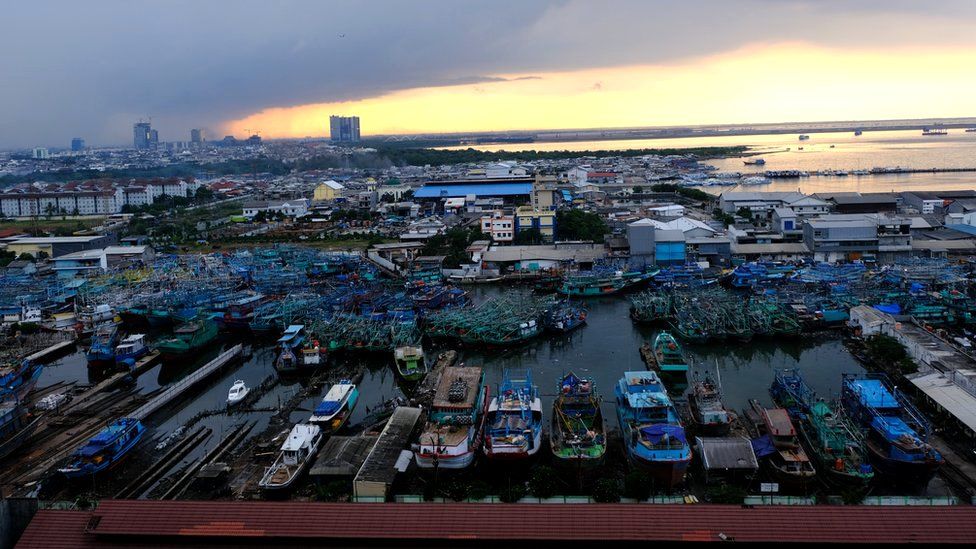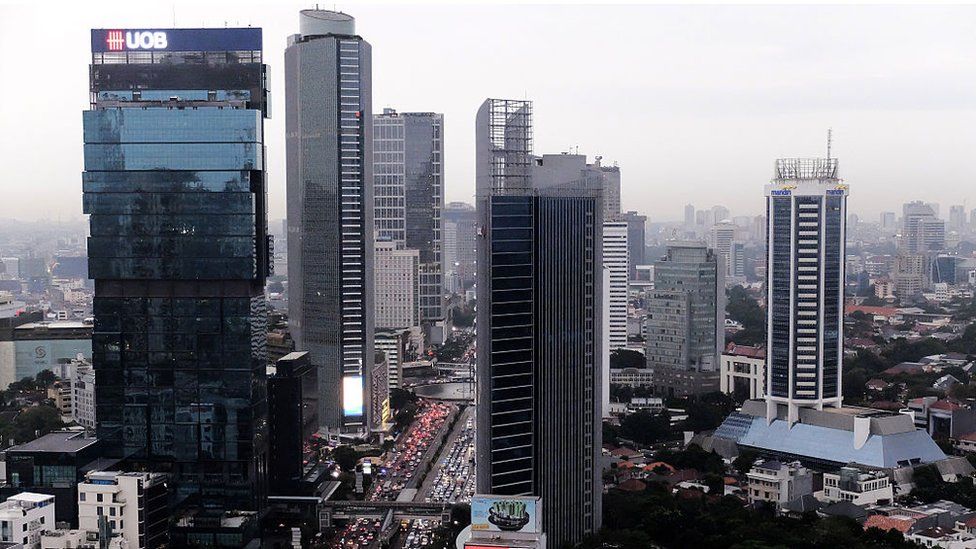Discard the Old, Herald the New
"The location is very strategic -- it's in the centre of Indonesia and close to urban areas."
"The burden Jakarta is holding right now is too heavy as the centre of governance, business, finance, trade and services."
Indonesian President Joko Widodo
"The move will have an environmental impact. Jakarta has suffered so many failures from pollution, water crisis, and flooding."
"We don't want these problems in the new capital."
Jasmine Puteri, senior forest campaigner, Greenpeace
"By moving the capital you're not going to solve the problems of Jakarta."
"The ones really excited about moving the capital are the developers."
Elisa Sutanudjaja, executive director, Rujak Center for Urban Studies
 |
Floating houses on Mahakam river in Samarinda, near the site of the new capital.
BAY ISMOYO/AFP/Getty Images
|
Looking into the foreseeable future there are many island-states and cities in the world that have advance warning they will eventually be consumed by rising sea waters, among them Houston, Texas, Lagos, Nigeria, New Orleans, Louisiana, Washington, DC, Beijing, China. What most of these cities with the exception of Washington face has come about partially as a result of poor stewardship, using too much groundwater at a time of rising sea levels courtesy of climate change. Miami, Florida sees its Everglades receding as a result of irrigation of crops in an otherwise dry geology.
And in Jakarta, Indonesia, one of the world's mega-cities with its ten million population -- 30 million in its greater metropolitan population area, land misuse and abuse and groundwater extraction, exacerbated by rampant construction has resulted in environmental chaos. It is now classified as one of the fastest-sinking cities on the globe with a forecast that by 2050 a full third of the city may be fully submerged.
This is a disaster that has been seen unfolding for many years, and the process has simply accelerated since no remedial action has been undertaken. The subsidence of the city has left 40 percent of the city's residents without water piped into their homes. "The city is sinking by one to 20 centimetres a year", earth scientist Heri Andreas of Bandung Institute of Technology in Indonesia has stated along with his calculation that the ground in some areas of the city has already sunk two to four metres below sea level.
 |
| North Jakarta is sinking by about 25cm every year |
Jakarta seems doomed, and its government has decided on abandoning it to its fate, more or less. Indonesia is preparing to move its capital to the eastern edge of Borneo Island, shifting its political centre safely away from the megalopolis on the edge of disintegration. The city was built in an earthquake zone near the confluence of 13 rivers. Built on swampland, the city is the victim of poor urban planning, resulting in confining congestion and deadly pollution levels.
 |
| An inspection of buildings in Jalan Thamrin, central Jakarta found many operators pumping groundwater without a permit AFP |
Now, the largest Muslim-majority country in the world has a proposed new location where it has been judged a "minimal" risk of natural disasters threaten. Indonesia owns 180,000 hectares of land on Borneo, with the Indonesian side of the huge island comprising five provinces known for rainforests, orangutans and coal reserves. The move will necessitate the building of new government offices and homes to accommodate the 1.5 million people who are civil servants.
The cost of this venture? About $44 billion. The government is prepared to submit a bill and a feasibility study results to its parliament for approval of a new capital. "The economic impact was good in Brazil" [when Brazil moved from Rio de Janeiro to the government-blueprinted Brazilia in 1960, a city cited as a model in well-planned, modernized urban architecture], enthused Rudy Prawiradinata, deputy minister for regional development.
"Environmental issues", he promised, would set the new city's design as yet another showpiece of urban architectural planning. Jakarta is to be retained as Indonesia's financial centre, while the city's chronic dysfunctional problems would be addressed responsibly, although it is already being suggested that the city will face neglect as the government focuses on its new site- and purpose-specific location, 'forgetting' the plight of its former capital.

Labels: Climate Change, Indonesia, Inundation, Jakarta, Rising Sea Levels
0 Comments:
Post a Comment
<< Home